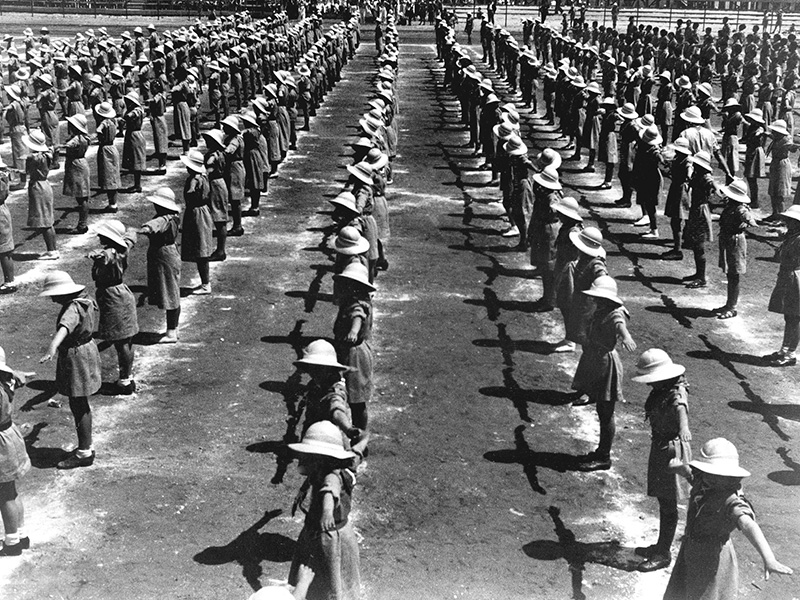“Join together, young men, we need you. Train not only your spirit, but your muscles as well. Be strong and upright and study diligently. We shall need your strength and your knowledge. I believe that a new and wonderful generation of Jews shall arise in the country. The sons of the Maccabees will return to life!”
Little did Yosef Yekutieli know what he was starting back in 1912. The 15-year-old Russian-born immigrant to Palestine was so inspired by the Olympic Games in Stockholm that he embarked on a quest to create a similar event for Jewish athletes. After years of lobbying, Tel Aviv played host to the first Jewish Games in 1932.
Next month, thousands of athletes from 80 countries will participate in the 20th Maccabiah Games.
The History of the Maccabiah
The first formal Maccabiah took place in Palestine in the 1930s, but Jews have participated in competitive sports events as far back as the 14th century in Weissenfeld and the 15th century in Rome. More recently, two Jewish gymnasts, Alex and Felix Flaton, won golden laurels for Germany at the first modern Olympic Games in Athens in 1896.
Three decades later, at the 12th Zionist Congress in Carlsbad in 1927, the Maccabi World Union was created “to foster physical education, the belief in the Jewish heritage and the Jewish nation, and to work actively for the rebuilding of our own country and for the preservation of our people.”
When Yekutieli lobbied the following year for Jewish games to be held in Palestine, he hoped the “Maccabiada” would take place in time for the 1800th anniversary of the Bar Kochba Rebellion (132 – 135 CE). They did. But when the games launched in 1932, their titled was Hebraicized to “Maccabiah.”
Where does the name “Maccabiah” come from? Here are two explanations from the Encyclopedia Judaica:
• The word Maccabi is formed by taking the Hebrew acronym of the words Mi Kamocha Ba’ay-lim Ado-shem / Who is like unto thee, O LORD, among the gods? (Exodus 15:11)
• It was named after Judah Maccabee, famous for his role in the revolt against the Greeks in the story of Chanukah.
Which leads us to an interesting irony. Judah Maccabee strongly disapproved of athletic games and competitions, which were a clear influence of Greek culture and were introduced into Jerusalem by his staunch enemies, the Hellenised Jews. In a similar vein, the late Lubavitcher Rebbe found Jewish participation in the Olympics disdainful. “The whole point of Chanukah is the Jews’ victory over the Greeks… Now they want to … resurrect this Greek custom, the opposite of the whole point of Chanukah!”
When those first Maccabiah games took place in Tel Aviv, Mayor Meir Dizengoff made quite the entrance into the stadium astride a white stallion. As well, “the opening ceremony witnessed the release of 120 carrier pigeons, 10 pigeons for each of the 12 tribes of Israel, whose mission was to send to the world news of the opening of the first Maccabiah games.” Those games welcomed 390 athletes from 18 countries.
Here’s a great piece of trivia from 2nd Maccabiah in 1935: “In defiance of the British government’s strict limitations on aliyah, many competitors took advantage of their being in the Holy Land and decided to stay. Such was the decision of the entire Bulgarian delegation, which unanimously decided to make aliyah and shipped their musical instruments back to Bulgaria instead of themselves.”
By 1997, the Maccabiah hosted 5,500 athletes from 50 countries. But the 15th games will always be remembered for the tragedy that caused loss of life and numerous injuries. Four members of the Australian delegation were killed and some 70 others were injured when a footbridge collapsed as they walked over it to attend the opening ceremony. Four of the five officials found guilty of negligence for the bridge collapse were sentenced to prison terms. Australia’s participation in the following Maccabiah had been in doubt until Israel agreed to pay $4 million in compensation to Sasha Elterman. The Australian tennis player had been near death after ingesting a poisonous fungus in the polluted waters of the Yarkon River.
Maccabiah Games Opening Ceremony 2013
If you have dreamed of competing on the international stage but aren’t quite ready for the track, the pool or the rugby pitch, you may still be in luck. The Maccabiah has long featured events that require both brawn and brain.
That means you, bridge and chess masters!







